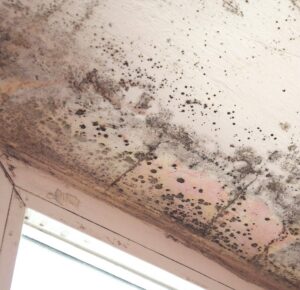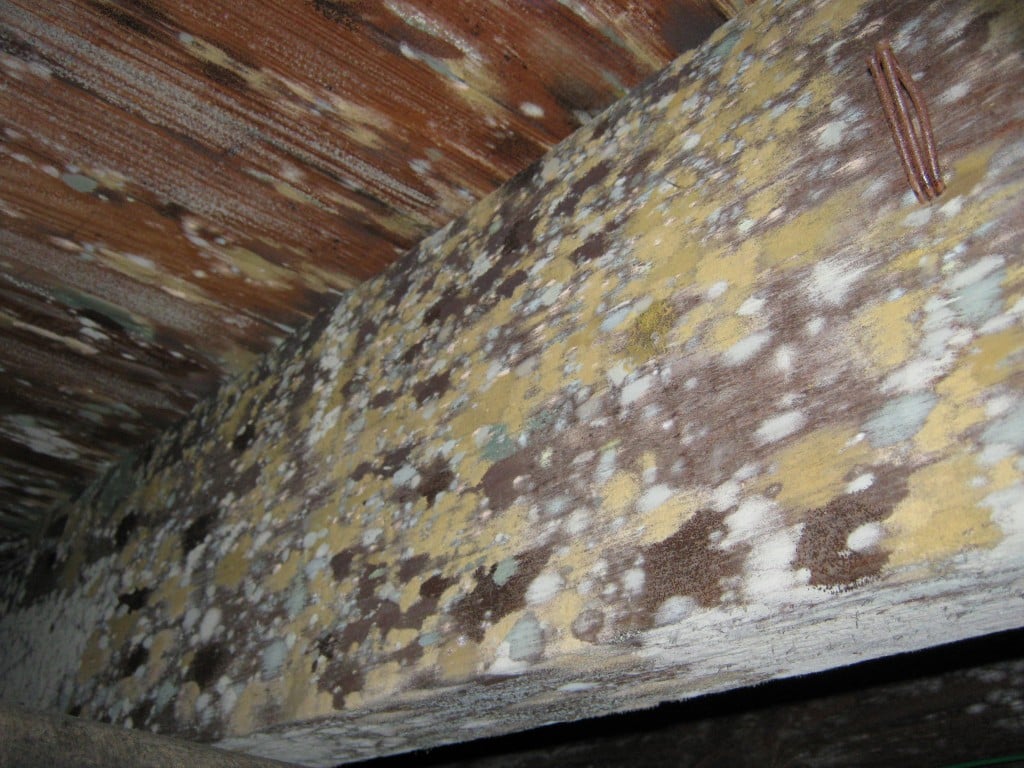Elevated water levels in the home can quickly lead to mold. Whether the water and humidity levels have risen from a leak, a flood, or another cause, it’s important to take the next steps to protect your home. Finding a mold remediation company that can restore your home and remove the mold is the first step.
However, you may be wondering whether or not your insurance company can pay for these repairs. If you’ve been wondering, ‘Who pays for mold remediation?” the answer can vary depending on your specific situation. Read on to find out more about mold remediation claims and to learn the next steps to take if you have discovered mold in your home.
What to Do If You Discover Mold
If you suspect that you have mold in your home, the first step is to have your home inspected. A mold tester will be able to confirm the presence of mold in your home. Additionally, they will be able to tell you about the type of mold you have.
Depending on the severity of the mold, you may be able to remove it yourself. However, if it is severe, you will need to contact a mold remediation company.
What You Can Do To Prevent Mold
Preventing mold in the home comes down to reducing the level of moisture. You can do this by ensuring that there is enough airflow in the home. To increase air flow, consider installing fans.
Additionally, fix any leaks or spills right away to prevent excess moisture from building up in the air. Purchasing an air purifier is an added step that can help in preventing mold spores from multiplying.

Does Homeowners Insurance Cover Mold?
Many homeowners ask the question: is mold covered by insurance? The truth is that it depends. There are certain situations in which a standard homeowners insurance policy will cover mold. If there is a covered condition that the homeowner’s insurance policy covers that causes mold, then the insurance company will cover mold remediation.
If there is mold hiding within the home’s structure like in the ceilings, floors, or walls, then the insurance company will likely cover mold remediation. Situations where a homeowner’s policy will cover mold include –
- When there is excess water after the firefighters use a fire extinguisher
- When a water heater hose has a leak or bursts
- When there is an overflow from a damaged toilet
- When a washing machine or other appliance leaks or gushes water
Excess water from a natural cause like a roof leaking after a rain storm is usually covered by a homeowners insurance policy. When mold results from this, you can put in a homeowner’s insurance claim to pay for the related mold remediation.
A policy rider or supplemental insurance policy can help cover incidences of mold that standard homeowner’s insurance won’t cover. Below are the two main options to include when you need extra coverage to protect against mold.
- Hidden Water Damage Coverage: Getting coverage for leaks or drips that aren’t visible is a wise idea. This type of add-on policy can help to cover damage caused by non-visible water leaks. Some of the incidences that this type of policy rider will cover are sump pump overflows, drain backups, and sewer line backups.
- Coverage for Water Backups: Getting coverage for water backups of drains, sewer lines, and sump pump overflows is another option. Homeowners wondering “Does homeowners insurance cover mold?” can breathe a lot easier with this type of add-on policy. The insurance company will usually cover mold remediation with this type of policy rider.
If you’re wondering, “Will homeowners insurance cover mold insurance claims?” the best option is to contact the homeowner’s insurance provider directly to find out.
When Does Homeowners Insurance Exclude Coverage for Mold?
Homeowners’ insurance policies don’t typically cover mold remediation if the mold growth was a result of neglect. They also won’t provide coverage in the event of flooding or water backups resulting from clogged sewer lines.
Generally speaking, mold growth caused by neglect is not covered by home insurance. Other instances when mold is not covered by a standard homeowners policy include –
- Flooding. (A separate flood insurance policy will cover mold in some cases.)
- Water backup caused by a broken sump pump or clogged sewer line
- Neglecting leaks or broken seals in and around plumbing, fixtures, appliances, windows, and doors
- Poor ventilation that leads to humidity buildup in mold-prone areas such as a basement or bathroom
Frequently Asked Questions (FAQs)
Should I Tell My Insurance Company About Mold?
You should tell your insurance company about mold if you plan to file a claim. If you have discovered mold, the biggest question is who pays for the mold remediation? Is mold remediation covered by insurance? Your insurance company can pay in specific situations. Contacting them to find out your options is the best course of action.
What Is The Protocol For Mold Remediation?
A professional mold remediation company can remove mold of all types including black mold. If you are wondering, “Does homeowner’s insurance cover black mold?” the answer is yes, depending on the circumstances that led to the mold formation. The remediation process for mold includes –
- Identify the source of the mold.
- Contain the mold to prevent it from spreading.
- Implement air filtration systems to purify the air and remove airborne mold spores.
- Remove affected drywall, wood, carpet, and furniture.
- Professionally clean impacted areas.
- Replace any unsalvageable building materials as needed.
How Does Mold Remediation Affect Home Value?
A home with mold will have a reduced value when compared to a home without mold. However, mold remediation will improve the chances of increasing the home’s value so that the homeowner can list it for a fair market price.
Conclusion
Give Attic Projects a call today to get a free quote on mold remediation! We provide professional mold remediation services using the industry’s most trusted techniques. If you’re wondering who pays for mold remediation, we’ll help you with figuring that out as well! Contact us today and get your free inspection scheduled.




